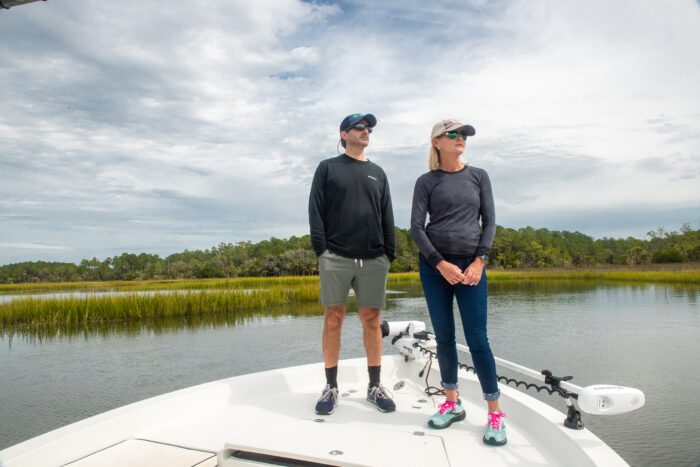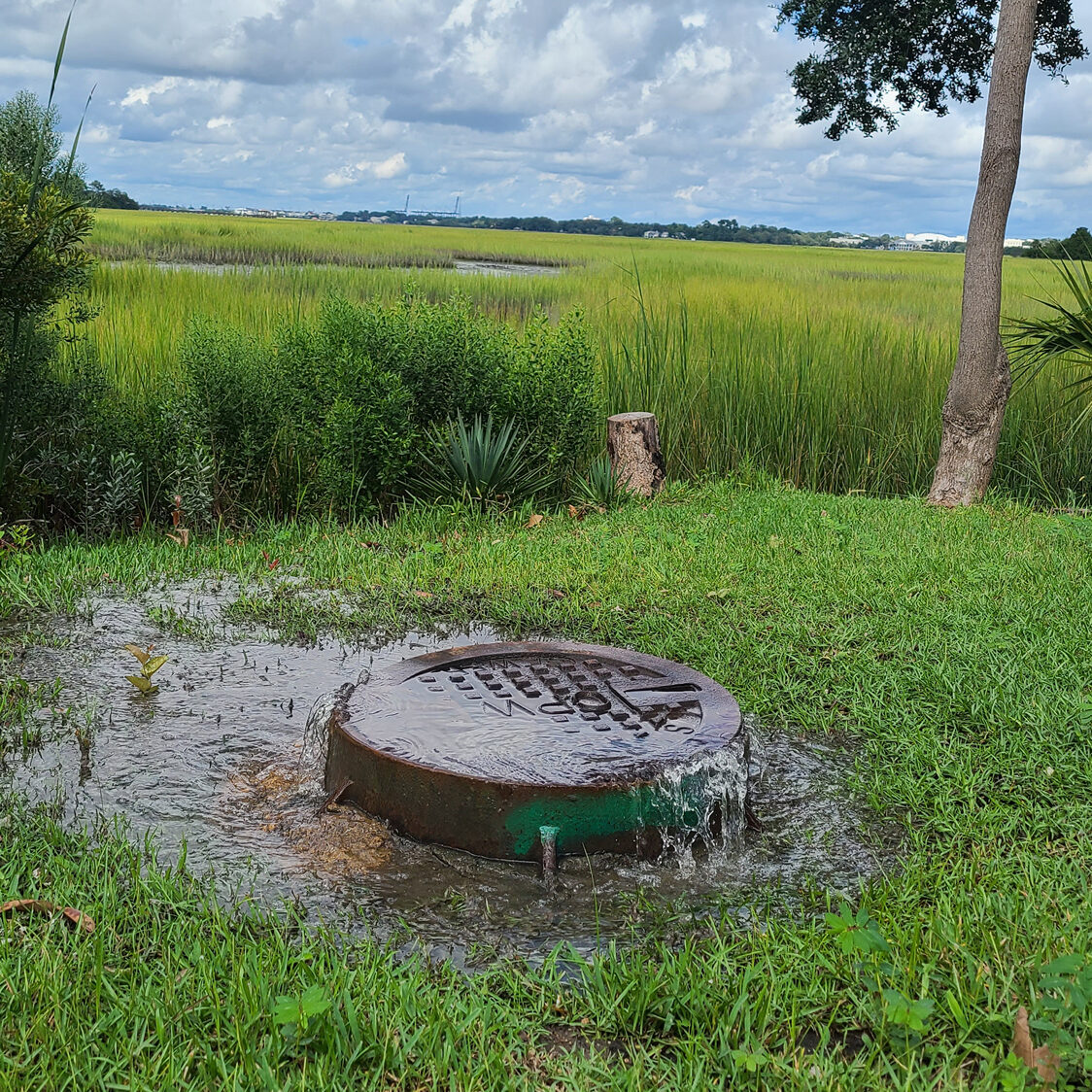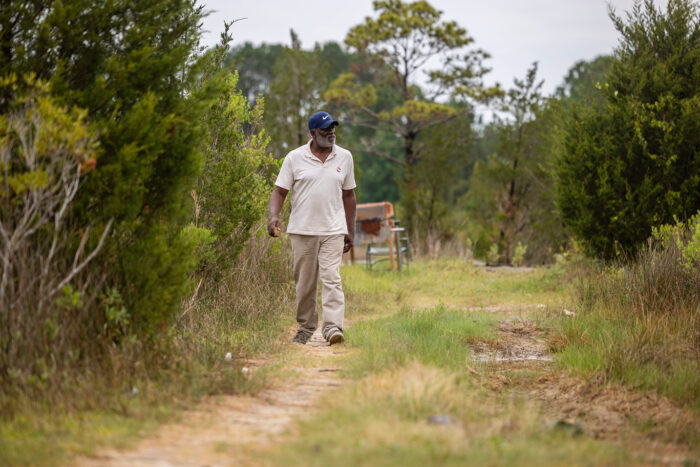South Carolina Update
Fall 2024
As the South experiences extreme heat and increased flooding, we are at a critical time for our environmental future. Together, we can protect our remarkable natural resources and help turn the tide on climate change. SELC was built for this.
Your support enables us to do this work.
Rooted in the South, we use strong legal and policy work, strategic vision, and pragmatic problem solving in all three branches and at all levels of government. When one door is closed, we find another way. With our commitment to place, SELC is building on nearly 40 years of success in South Carolina and five other states, and driving results that resonate across the nation. That’s why we say, “Solutions Start in the South.”
Now is the time to act. Join us.
Ensuring Climate Resilience for South Carolina

©Stephanie Gross
The Cainhoy development is the poster child for damaging coastal projects — it proposes to destroy and fill wetlands in order to place over 9,000 homes adjacent to the Francis Marion National Forest, with about half of the new homes constructed in the floodplain. When the U.S. Army Corps of Engineers ignored our expert-informed, less damaging alternative design and approved the original plan, we challenged the permits in federal court. Last year, we broadened our litigation to include claims under the Endangered Species Act regarding impacts to the endangered northern long-eared bat and other species. After we took this action, the government halted construction at the site to evaluate these impacts.
With nearly 210,000 South Carolinians living in flood-prone areas, SELC is promoting solutions that protect natural areas while opposing misguided responses to flooding. We helped pass a historic resilience law and worked to shape the South Carolina Office of Resilience and its statewide plan. The plan includes a proposal for state legislators to protect wetlands that are now more vulnerable after a recent U.S. Supreme Court decision rolled back long-established federal protections. We also secured a major victory with the South Carolina Real Estate Commission when we collaborated to require comprehensive disclosure of flood risk to home buyers. Homeowners will no longer be kept in the dark about whether the property they want to buy was flooded in a major storm or high tide event.
In Charleston, SELC celebrated the unanimous passage of a new city ordinance banning “slab-on-grade” foundations in the 100-year floodplain. The building practice — which involves piling dirt, pouring concrete, and building directly on a concrete slab — can exacerbate flood risks for neighboring areas and is expensive and difficult to upgrade. The ban will help strengthen Charleston’s resilience to climate change and serve as a roadmap for other cities hoping to address flooding. SELC is also weighing in as the Army Corps seeks to build a more than billion dollar, 8-mile-long seawall that fails to account for a realistic amount of sea level rise, leaves out communities higher on the peninsula, and will make some types of flooding worse. We are pushing the Corps to improve the project by incorporating nature-based solutions into the design.
Solutions start in South Carolina.
Nonprofit and nonpartisan, we are the Southern Environmental Law Center. The South’s largest and most effective environmental defender.
Protecting Clean Water

©Charleston Waterkeeper
SELC is fighting to keep industrial toxins known as PFAS and 1,4-dioxane out of South Carolina’s waterways. Although these toxins cause serious health impacts, conventional drinking and wastewater treatments often do not remove them. On behalf of the Congaree Riverkeeper, we recently filed a federal lawsuit against Shaw Industries for their PFAS pollution in the Lower Saluda River in Columbia – the pollution, which reaches drinking water sources, violates the Federal Clean Water Act. We are also dedicated to keeping our waterways free of municipal wastewater. Along with the Charleston Waterkeeper, we recently provided notice of our intent to sue Charleston Water System over their chronic sewer system overflows that threaten Charleston’s health and safety.
Fighting Fossil Fuel Power
SELC is working tirelessly to help set South Carolina’s energy planning on a path away from fossil fuels through integrated resource plan proceedings with the state’s Public Service Commission. These dockets mark a critical opportunity for SELC to reinforce the benefits of renewable resources and the risks of utility reliance on fossil fuels. Unfortunately, the commission approved Dominion’s plan to jointly construct a large gas plant with Santee Cooper as part of their coal retirement process. Recent legislation aims to rush the gas plant by removing regulatory safeguards and threatens the ability for property owners to challenge pipelines and plants nearby. We continue to advocate instead for the expansion of energy efficiency, solar power, and battery storage — each of which can and should be deployed before construction of a new gas plant. SELC is also focused on protecting and promoting customer access to cost-saving options, particularly in light of recent gas price volatility that has driven up customer bills. Following up on a settlement we helped secure in 2022, we are now working with Duke Energy and allies to expand the utility’s energy efficiency programs for customers who need energy bill relief most.
Solutions for a healthy environment start in South Carolina. Your support helps make our wins possible.
Challenging Problematic Highway Proposals

©Gavin McIntyre
We remain active in opposing several highway proposals in the South Carolina Lowcountry that would damage important wetlands and worsen flooding.
Proposal to widen Highway 41: We are working closely with community groups to fight for an equitable alternative to a proposal in Charleston County to widen Highway 41 through the historic Phillips Community, which was founded by freed people shortly after the Civil War.
SC 22 Extension: We are engaged in the public review process for the project formerly known as the Southern Evacuation Lifeline, which would plow through a historically Black community and open hundreds of thousands of flood-prone acres to development.
Mark Clark/I-526 Extension: We remain engaged with the proposed Mark Clark/I-526 Extension, a costly and destructive highway that would destroy wetlands and salt marshes, exacerbate flooding, and impact historic Black communities in its path.
